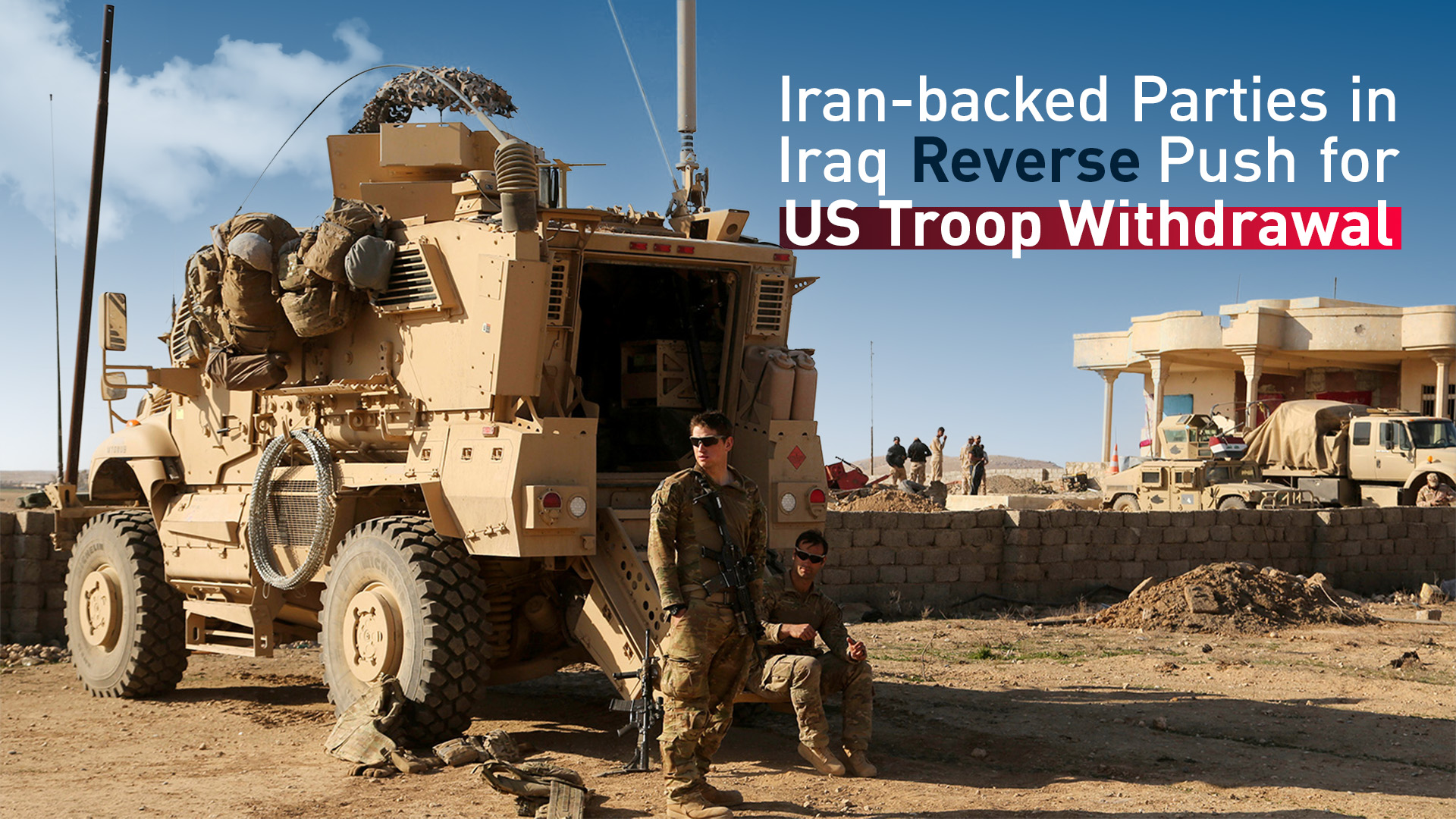Iran-backed Parties in Iraq Reverse Push for US Troop Withdrawal
It seems Baghdad has come around to the Kurdish view that the continued presence of Coalition forces is important to Iraq’s stability.

Feb. 1, 2025
WASHINGTON DC, United States (Kurdistan 24) Pro-Iranian political groups in Iraq have withdrawn their demand that U.S. forces leave Iraq, according to a report out of Baghdad on Friday by The Associated Press. Those groups now favor a continued U.S. military presence in the country, it said.
Previous Talks
Negotiations were held last year about transitioning the presence of foreign troops in Iraq, including U.S. forces, from one based on the anti-ISIS Coalition to one based on bilateral understandings between the Iraqi government and the various outside powers.
Those talks were basically about a transition—not withdrawing U.S. forces in their entirety from Iraq, as Col. Myles Caggins (U.S. Army, Retired), a former Spokesperson for the anti-ISIS Coalition explained to Kurdistan 24.
Read More: Col. Caggins: U.S. Forces Will Stay in Iraq—Talks are About Transition to Bilateral Security Ties
However, Iran and the Iraqi political parties it supported, particularly within the so-called Coordination Framework, sought to portray the subject of the discussions as a complete U.S. troop withdrawal. That was false, but, perhaps, it was a way of increasing pressure on Baghdad to limit as much as possible the foreign military presence which it allowed.
That position was contrary to the Kurdish perspective, and it was opposed by the senior Kurdish leadership, as President Masoud Barzani explained to the U.S. ambassador, Alina Romanowski, in the summer of 2024, as he made a rare visit to Baghdad.
Read More: KDP President Masoud Barzani meets with US Ambassador to Iraq
It now appears that Baghdad has come around to the Kurdish view, as Barzani advised Romanowski: the continued presence of Coalition forces in Iraq is very important to the country’s stability!
New Attitude in Baghdad, while Trump signals ambiguity
“The fall of Bashar Assad in Syria has led Iran-allied factions” within Iraq “to reconsider their push for U.S. forces to exit the country, multiple Iraqi and American officials told The Associated Press,” the news agency reported on Friday.
AP attributed the change of views to the “lightning offensive led by Sunni Islamist rebels” which brought down Assad’s regime last month.
In addition, initial indications from the new U.S. administration toward the U.S. military presence in Rojava (eastern Syria) have been ambiguous. It is not clear that Trump wants to stay in Syria—and pressure from Baghdad could push him over the edge.
In his first term, Trump initially declared victory against ISIS in Syria and ordered the withdrawal of U.S. forces. That ill-considered decision prompted the resignation of his Secretary of Defense, Jim Mattis.
Read More: Mattis resigns, protesting Syria withdrawal, worried about fate of Syrian Kurds
Trump’s order also provoked opposition from important Republican figures, like Sen. Lindsey Graham (R. South Carolina), a long-time friend of the Kurds, and Trump soon reversed himself.
Read More: Sen. Graham: Trump will protect Kurds in Syria, defeat Islamic State
That history was behind questions this week to the Trump administration about its stance on Syria. On Thursday, Trump was asked about the U.S. military presence, and he responded, "We're not involved in Syria. Syria is in its own mess. They've got enough messes over there. They don't need us involved.”
The White House press secretary, Karoline Leavitt, was asked about Trump’s remarks at a press briefing on Friday, the next day. She responded that Trump, “as the Commander in Chief of the United States military, reserves the right to review troop deployments overseas at any point in time.”
Thus, it is unclear what Trump will decide.
“The fall of Assad—an ally of Iran—weakened Tehran’s hand in the region, leaving allied groups in Iraq feeling vulnerable,” AP explained. It also noted that many in Iraq fear that ISIS could exploit ”the security vacuum” there “to stage a comeback.”
Indeed, one member of the Coordination Framework in Baghdad told AP that the Iranian-backed Shiite groups “are in favor of keeping American forces in Iraq” and do not want them to leave “as a result of what happened in Syria.”
“Multiple other Iraqi political and security officials gave similar assessments,” AP added.
A high-ranking official in Iraq’s National Security Service told the news agency that in a recent government meeting, his office had argued that “it is not in Iraq’s interest to request the withdrawal of the U.S. and the international coalition from Iraq at the present time.”
“The loud voices that were previously talking about the withdrawal of U.S. forces from Iraq have decreased significantly,” he said.